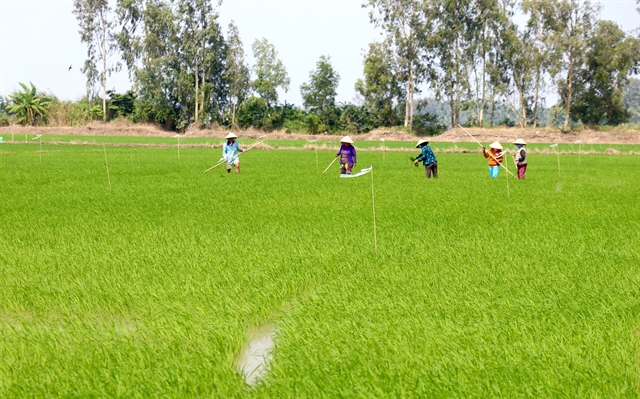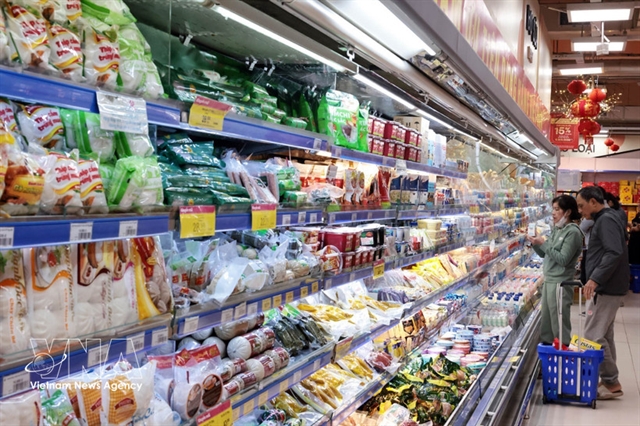 Society
Society

Farmers in the Cửu Long (Mekong) Delta are concerned about low profits from the ongoing 2021 – 22 winter – spring rice crop because of increased prices for input materials.

|
| Farmers tend the 2021 - 22 winter – spring rice in Kiên Giang Province. – VNA/VNS Photo Lê Huy Hải |
HCM CITY – Farmers in the Cửu Long (Mekong) Delta are concerned about low profits from the ongoing 2021–22 winter – spring rice crop because of increased prices for input materials.
The delta, which is the country’s rice granary, planned to grow 1.52 million hectares of winter - spring rice, according to the Ministry of Agriculture and Rural Development’s Plant Cultivation Department.
Under instructions from the ministry, farmers in the delta started sowing the crop in October and will finish sowing the winter – spring rice crop by the end of December.
Kiên Giang Province, which is the delta’s largest rice producer, planned to grow more than 280,000ha for the crop. Farmers have sowed more than 200,000ha of rice so far, but they are concerned about the increased prices of fertiliser, pesticides and fuel.
Nguyễn Xuân Hiền, who grows 1.5ha of rice in Kiên Giang’s Tân Hiệp District, said the production cost of his rice field is about VNĐ40 million (US$1,740) per hectare.
The price of fertiliser has increased two times against the same period last year, and the price of pesticides, fuel and labour cost have also increased.
If the winter – spring rice is bought at VNĐ5,000 a kilogramme, farmers will not have a profit, he said.
Local authorities in the delta have instructed farmers to apply “three increases – three reductions”, “one must – five reductions” and other advanced farming techniques to reduce production costs and increase profits.
Under the “one must – five reductions” method, farmers must use certified seeds, and reduce seedlings, nitrogenous fertiliser, plant-protection chemicals, and irrigation and post-harvest losses.
Farmers have also been warned to sow the winter – spring crop according to schedule to avoid the impact of brown plant hoppers, which are the main rice pest, flooding, and freshwater shortages because of saltwater intrusion.
Nguyễn Chí Thiện, deputy director of the Long An Province Department of Agriculture and Rural Development, said the impact of high tides and the slow receding of floodwater have affected the sowing of the winter – spring rice.
Farmers in the province have sowed more than 102,500ha of rice, reaching only 40 per cent of the province’s sowing target.
Many farmers in the delta still use a large quantity of rice seeds for sowing, although local authorities have said the proper quantity is about 80 kilogrammes per hectare.
In Đồng Tháp Province, local authorities have told farmers to reduce the use of rice seeds, and use integrated pest management and other advanced farming techniques to reduce production costs and increase yield and profit.
The province's Department of Agriculture and Rural Development deputy director, Huỳnh Tấn Đạt, said: “The use of surplus amount of rice seeds will require a higher amount of fertiliser, causing higher production costs.”
Farmers should use a proper quantity of rice seeds and apply “three increases – three reductions”, “one must – five reductions”, he said, adding that these measures can reduce the cost of input materials by 40 per cent.
Winter – spring rice is the most important rice crop of the year in the delta.
Trần Thái Nghiêm, deputy director of the Cần Thơ City Department of Agriculture and Rural Development, said to have a successful winter- spring rice crop, the department has encouraged farmers to develop linkages with co-operatives and rice companies.
It has also encouraged rice companies to work with localities to develop rice areas for export. – VNS




